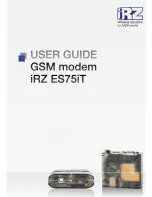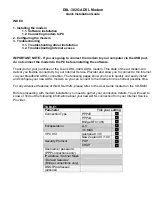
Cerberus P 6331-4A
39
VLAN
Virtual LAN (VLAN) is a group of devices on one or more LANs that are configured so that
they can communicate as if they were attached to the same wire, when in fact they are located
on a number of different LAN segments. Because VLANs are based on logical instead of
physical connections, it is very flexible for user/host management, bandwidth allocation and
resource optimization.
•
Port-Based VLAN: each physical router port is configured with an access list specifying
membership in a set of VLANs.
•
ATM VLAN-using LAN Emulation (LANE) protocol to map Ethernet packets into ATM
cells and deliver then to their destination by converting an Ethernet MAC address into an
ATM address.
The key for the IEEE 802.1Q to perform the above functions is in its tags. 802.1Q-compliant
switch ports can be configure to transmit tagged or untagged frames. A tag field containing
VLAN (and/or 802.1p priority) information can be inserted into an Ethernet frame. If a port has
an 802.1Q-compliant device attached (such as another switch), these tagged frames can carry
VLAN membership information between switches, thus letting a VLAN span multiple switches.
However, it is important to ensure ports with non-802.1Q-compliant devices attached are
configured to transmit untagged frames. Many NICs for PCs and printers are not 802.1Q-
compliant. If they received a tagged frame, they will not understand the VLAN tag and will drop
the frame. Also, the maximum legal Ethernet frame size for tagged frames was increased in
802.1Q (and its companion, 802.3ac) from 1518 to 1522 bytes. This could cause network
interface cards and older switches to drop tagged frames as “oversized”.
VLAN Function
– Select if VLAN will be
Activated
or
Deactivated
.
Assign VLAN PVID for each interface
– Click to open
PVID Assign
screen.
Define VLAN Group
– Click to open
VLAN Group Setting
screen.
Summary of Contents for Cerberus P 6331-4A
Page 4: ...Cerberus P 6331 4A 4 ...
















































